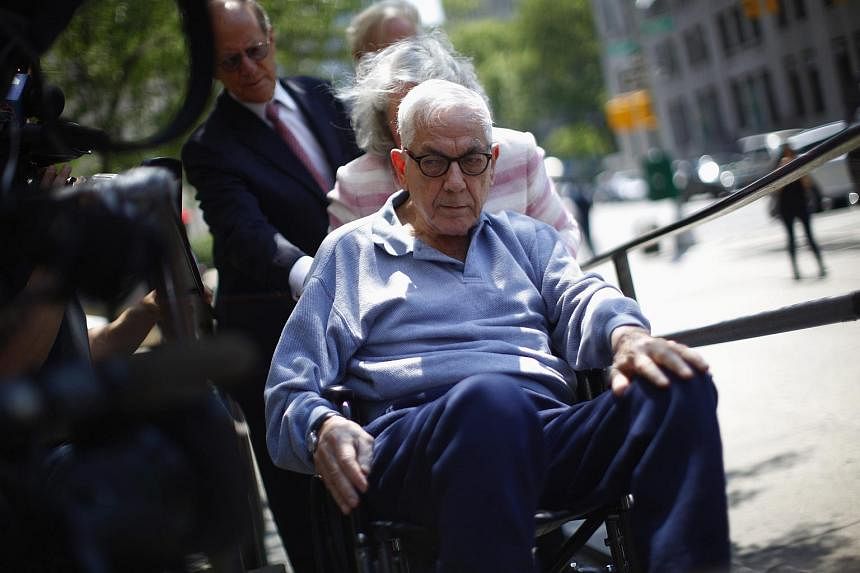NEW YORK • Two years after New York socialite Brooke Astor died in 2007, her son Anthony Marshall was convicted of bilking her of millions of dollars. The heiress suffered from dementia and did not know that her son, charged with her care, was paying himself exorbitant amounts from her assets.
The Astor story is surprisingly common. A growing number of Americans suffer from Alzheimer's disease or other forms of dementia, and a sizeable percentage of those patients will fall victim to scams.
US states are now looking to provide more protection for elderly investors. Three states, most recently Missouri, have passed laws that allow brokers to help curb scams against people with dementia.
The measures, being considered by other states as well, give brokerages the authority to prevent older clients from transferring money to other people, at least temporarily, if a wealth manager believes his customer may have dementia and may be being conned.
More than five million Americans over 65 have Alzheimer's disease, the most common form of dementia. That could balloon to 7.1 million by 2025. These victims can be easy marks for con artists and unscrupulous family members.
A study in 2011 by Britain's Alzheimer's Society found that almost two-thirds of caregivers for Alzheimer's patients said people they were looking after had been approached by "unscrupulous cold callers or salespeople" and 15 per cent had been subject to some kind of financial abuse.
More than half of all such financial exploitation is perpetrated by friends, family members or caregivers, according to the Securities Industry and Financial Markets Association. The abuse is often difficult to spot, but requests for large "questionable" sums of money are often a sign, the group said.
"It's a big problem and it will get bigger," said Ms Lynne Egan, Mon- tana's deputy securities commissioner, who heads a committee of state securities regulators drafting model laws for legislatures on this matter. Mr Philip Marshall, An- thony's son and Mrs Astor's grandson, said that laws such as those passed in Missouri could have helped protect his grandmother.
Using big data could help to highlight irregularities that may be linked to a scam or abuse.
Mrs Astor was an heir to the fortune that the Astor family began accumulating in the 18th century from trading furs and investing in New York real estate.
She died in 2007, aged 105, with an estate of nearly US$200 million, most of which was dedicated to philanthropy.
Her son exploited part of her estate, including paying himself almost US$1 million for managing her affairs in 2006, a jury found.
"My grandmother would never want to be known as one of Ame- rica's most famous cases of elder abuse," Mr Philip Marshall told a Senate committee on ageing in February. But her circumstances in highlighting the issue may be her greatest legacy, he said.
REUTERS

